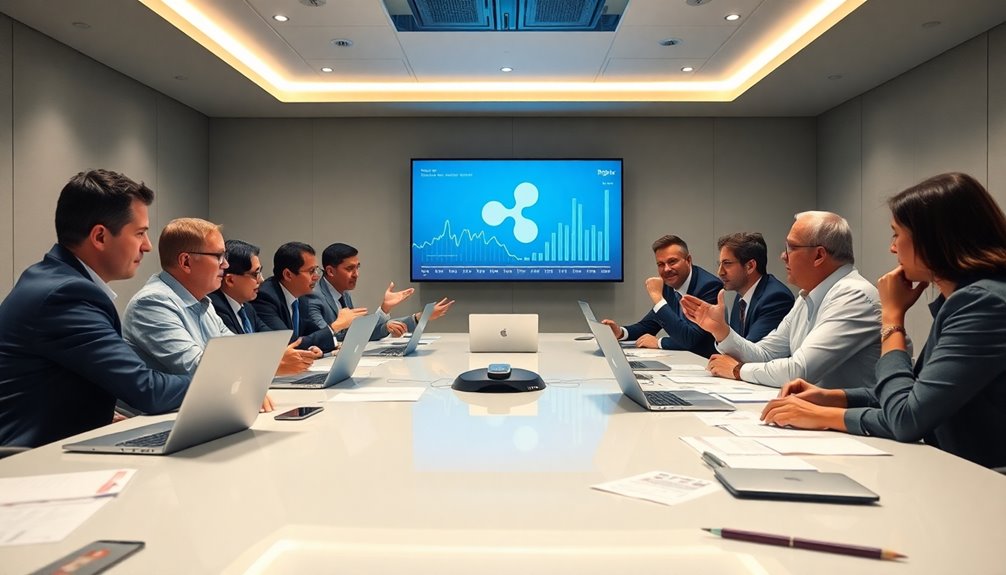You might find it intriguing that Ripple's internal communications reveal a deliberate strategy to undermine Bitcoin's reputation. The focus on Bitcoin's centralization and environmental concerns is no accident. Instead, it's part of Ripple's broader push to position XRP as a superior option. What's even more surprising is how this ties into their lobbying efforts. The implications of this strategy could reshape perceptions in the cryptocurrency world. What does this mean for the future of digital assets?

As Ripple pushes for a diversified approach to cryptocurrency, it has strategically positioned itself against Bitcoin, questioning its decentralization and environmental impact. The company's internal emails from 2018 reveal a calculated effort to frame Bitcoin as overly centralized, primarily due to its mining operations heavily influenced by Chinese miners. You might find it intriguing that Ripple's executives have openly stated that Bitcoin's supply is largely dictated by these Chinese entities, promoting a narrative that paints Bitcoin in a less favorable light.
Ripple's lobbying efforts have intensified, especially against a Bitcoin-only strategic reserve in the U.S. Instead, it advocates for a multi-asset reserve that includes XRP, Solana, and USD Coin. This strategy not only aims to bolster Ripple's position in the market but also reflects its alignment with the emerging trend of Central Bank Digital Currencies (CBDCs). By emphasizing the potential of CBDCs operating on its infrastructure, Ripple seeks to establish itself as a key player in the future of digital currency.
Ripple is championing a multi-asset reserve to enhance its market position and align with the future of CBDCs.
Moreover, Ripple has engaged in environmental campaigns, like supporting Greenpeace's "Change the Code," which targets Bitcoin's mining protocol. You've probably noticed how Ripple uses Environmental, Social, and Governance (ESG) narratives to spotlight Bitcoin's environmental costs, despite facing backlash from Bitcoin supporters. Critics argue that these claims are outdated and misrepresent the current dynamics of Bitcoin mining. Yet, Ripple continues to assert that XRP is more decentralized and environmentally friendly than its leading competitor.
As Ripple pours millions into influencing political figures, including meetings with high-profile politicians, it's clear that the company is dedicated to its diversified reserve strategy. While some may argue that including multiple assets could undermine the reserve's effectiveness, Ripple maintains that its approach fosters support for American innovation in the cryptocurrency space. The company's narrative challenges Bitcoin's dominance by presenting XRP as a superior alternative.









